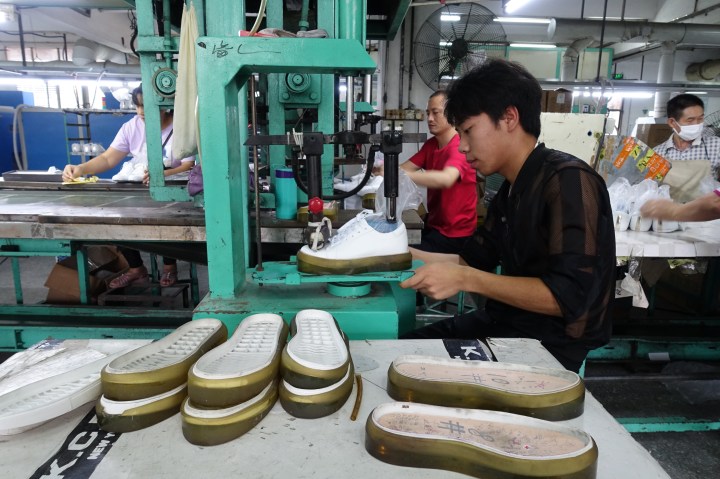
A Biden presidency won’t change what many Chinese exporters are doing
A Biden presidency won’t change what many Chinese exporters are doing

More than a year ago, every pair of shoes coming off the sewing machines at the Changjian factory in southern China were sent to America.
Once Chinese shoes were subject to an extra U.S. tariff because of the ongoing U.S.-China trade war, Changjian’s owner, Tony Tung, shifted manufacturing to the company’s other factories.
“Most of our production has moved out of China to Cambodia and Vietnam,” Tung said.
When Chinese manufacturers were hit by the pandemic economy, they had already been dealing with U.S. tariffs on billions of dollars’ worth of their exports. The Trump administration accuses China of playing unfair, which Chinese officials deny. There is no indication that President-elect Joe Biden will unravel the additional tariffs soon.
“I lost my biggest client in the U.S. because of the uncertainty of tariffs.”
Medical equipment supplier Miao Liping
To avoid the U.S. tariffs and rising labor costs in China, some manufacturers, like Tung, have moved their production to low-cost countries in Southeast Asia, although this is an expensive option.
Exporters who could only afford to remain in China sometimes split the cost of the tariffs with American importers to retain their business.
“We make concessions like earning less profit on the transactions,”overseas sales manager of E.MC Machinery Li Yansong said.
Other exporters make it worthwhile for Americans to pay for the extra tariffs by upgrading their products or services.
A metal and plastic parts manufacturer called Xmake said it attracts and retains American customers by providing more efficient service.
“Clients can upload diagrams of what customized parts they want. Our online system quotes them a price almost right away,” Xmake’s foreign sales manager, Claudia Zhou, said. “The whole ordering process can be done in a day … rather than a week.”
Zhou is among those in the manufacturing industry who feel that the U.S. policy towards China has been at its lowest point under President Donald Trump.
“Trump’s policy may well continue in the administration of a new president, but it won’t get worse,” she said.
Exporters not subject to American tariffs are also revising their business plans.
Initially, the U.S. trade representative wanted to place additional duties on medical syringes and then decided against it. That still made medical equipment supplier Miao Liping lose business.
“I lost my biggest client in the U.S. [to a South Korean supplier] because of the uncertainty over tariffs,” he said.
Miao said he doesn’t ever want to rely totally on the U.S market.
“We have switched our focus to Europe and the domestic Chinese market because of the impact of the U.S. China trade war,” he said.
It is a business plan that he won’t reverse even with a new president entering the White House in January. Miao said he expects that U.S.-China relations will remain tense.
Additional research by Charles Zhang.
There’s a lot happening in the world. Through it all, Marketplace is here for you.
You rely on Marketplace to break down the world’s events and tell you how it affects you in a fact-based, approachable way. We rely on your financial support to keep making that possible.
Your donation today powers the independent journalism that you rely on. For just $5/month, you can help sustain Marketplace so we can keep reporting on the things that matter to you.


















